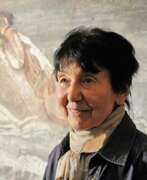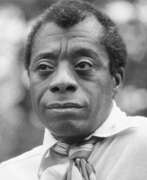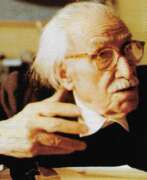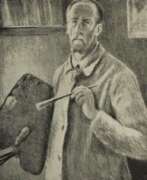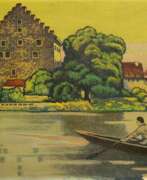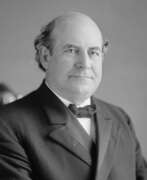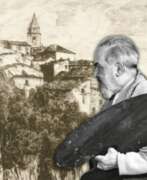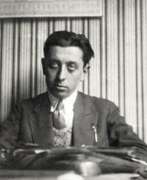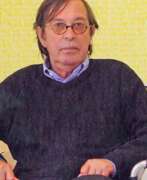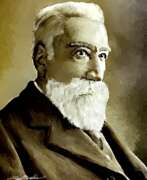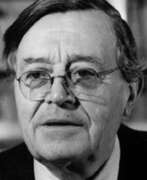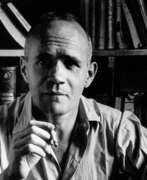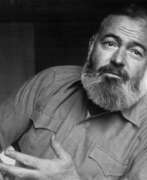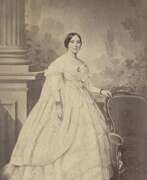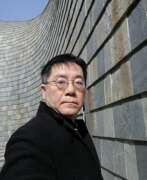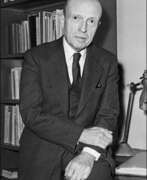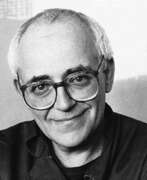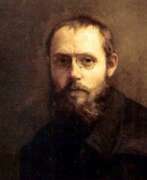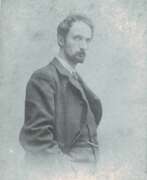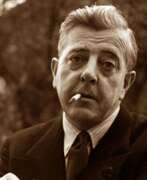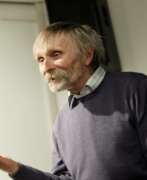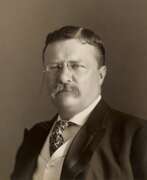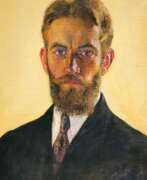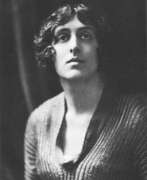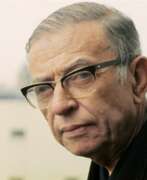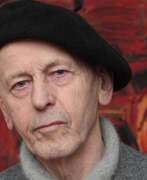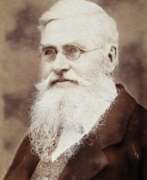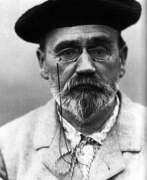Publicists 20th century
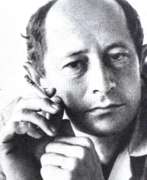

Stanislav Gennadievich Babikov (Russian: Станислав Геннадьевич Бабиков) was a Soviet and Turkmen artist of the mid-twentieth century. He is known as a painter, graphic artist, publicist, scenographer, as well as the son and pupil of Gennady Babikov, the founder of the Turkmen industrial landscape genre.
Stanislav Babikov is considered a continuator of the ideas of Russian Cezannism. He was a member of the informal Turkmen group "Seven", which sought to synthesize national elements and Western modernism in art. The master was also an author of articles on fine arts. His style reflects the influence of nature and climate of Turkmenistan and is characterized by bright color and expressiveness of color.
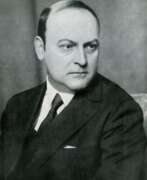

Léon-Paul Fargue was a French poet and novelist, journalist and publicist.
Léon-Paul studied at the Lycée Henry IV in Paris and as a young man became a member of the Symbolist circle associated with Le Mercure de France. His first collection of poems was published in 1912 and reprinted in 1918. After 1930, Fargue practiced journalism almost exclusively, writing newspaper columns and lyrical essays on Parisian life.
Léon Fargue's work encompasses various literary movements, being a kind of bridge from Symbolism to Surrealism. His work has also been associated with the Dadaists and the Cubists, but he followed his own path throughout his life. Fargue was among the founders of the Nouvelle Revue Française in 1912 and participated in the first issue of the surrealist journal Literature in 1919, and was one of the leaders of the experimental journal Commerce in the 1920s. Farg was friends with many writers, artists and composers, including Pablo Picasso and Igor Stravinsky.
In 1937, Léon-Paul Fargue was elected a member of the Académie Mallarmé, and in 1946 he won the Grand Poet Laureate of Paris.
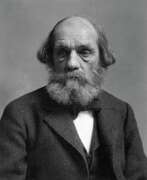

Edward Everett Hale was an American clergyman, preacher and writer, abolitionist and pacifist.
Hale demonstrated outstanding literary ability from an early age. He went to Harvard College and became a minister and preacher. Grandnephew of Revolutionary hero Nathan Hale and nephew of orator Edward Everett, Hale worked for his father's newspaper, the Boston Daily Advertiser. And for 70 years he never stopped writing newspaper articles, historical essays, short stories, pamphlets, and sermons for the North American Review, The Atlantic Monthly, and the Christian Examiner. From 1870 to 1875 he published and edited the Unitarian magazine Old and New.
Hale wrote several novels, of which the most popular were East and West (1892) and In His Name (1873). Hale's most famous novel, A Man Without a Country, first published in The Atlantic Monthly in 1863, was written to evoke patriotism during the Civil War. It is a political fable about a man who renounces his American citizenship and greatly regrets it.
Many of Hale's 150 books and pamphlets were tracts in support of the ideas of Negro education, worker's housing, and world peace. The moralistic novel Ten Times One is Ten (1871) was the impetus for the organization of several youth groups.
In 1847, Hale was elected a member of the American Antiquarian Society and remained a member for the rest of his life. A 10-volume collection of Edward Hale's writings was published between 1898 and 1900. In 1903 he was appointed chaplain of the United States Senate and joined the Literary Society of Washington. The following year he was elected a member of the Academy of Arts and Sciences.
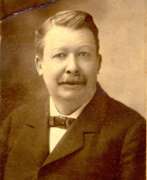

Joel Chandler Harris was an American journalist, Southern writer and folklorist, abolitionist, and author of Uncle Remus's Tales.
Joel was a very inquisitive and witty child, reading a great deal. From the age of 13 he worked as a typesetter and then as a reporter for several newspapers; in 1876 he became deputy editor at Atlanta Construction, where he worked for 24 years. As a journalist, Harris was an active abolitionist, advocating for black rights and against slavery.
At Atlanta Construction, Harris began publishing his now-famous Uncle Remus stories, using folklore he had heard from black workers on the plantation. These tales made Joel Harris famous and earned him a firm place in the classics of American literature. The general outline of the series of stories was simple: Uncle Remus, a wise and good-natured old black man, tells stories about Brother Rabbit, Brother Fox and other animals to the plantation owner's young son - through his prism of worldview.
Uncle Remus: His Songs and Sayings was first published in book form in 1880, and others followed. Harris also wrote six children's books set on a Georgia plantation, several novels and novellas.
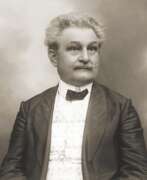

Leoš Janáček, birth name Leo Eugen Janáček, was a Czech composer and musicologist, folklorist, publicist and teacher.
Janáček was a singer in Brno, and studied at the Prague, Leipzig and Vienna Conservatories. In 1881 he founded the Collegium of Organists in Brno, which he directed until 1920. From 1881 to 1888 he directed the Czech Philharmonic Orchestra, and in 1919 he became professor of composition at the Prague Conservatory.
Janáček was deeply in love with national music, collecting folklore and publishing the journal Musical Pages. He was inspired by Moravian and other Slavic music, including Eastern European folk music, to create an original modern musical style.
In his early period of creativity, Janáček was strongly influenced by the musical style and aesthetics of his friend Dvořák. His first opera, Šarka (1887-88), was a romantic work in the spirit of Wagner and Smetana. In his later operas he developed his own distinctly Czech style, built on the intonations of his native speech and folk melodies. Janáček's most important operas are Jenůfa (1904) and Her Foster Daughter, which established the composer's international reputation; The Case of Macro Pulos (1926), From the Dead House (1930), and others. Most of Janáček's operas have been staged in Czech.
Janáček visited Russia three times, and his interest in Russian language and literature resulted in the opera Katya Kabanova (1921) and the orchestral rhapsody Taras Bulba (1918). Janáček also wrote a number of instrumental chamber works. The world-famous composer spent most of his life in Brno, where the vast majority of his works were performed for the first time. Today, Janáček is the most frequently performed Czech opera composer in the world.
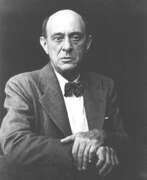

Arnold Schoenberg, real name Arnold Franz Walter Schönberg, was an Austrian and American composer, representative of musical expressionism, teacher, musicologist and conductor.
Schoenberg came from a Jewish family and began studying the violin at the age of eight and later the cello. While working as a bank clerk, he simultaneously studied composition with Alexander Zemlyansky (1871-1942) and soon wrote his first string quartet (1897) to acclaim. With the help of Richard Strauss, he obtained a teaching position in Berlin, and lived for a time in two cities. In 1904, Alban Berg and Anton Webern began studying with Schoenberg, and this largely determined their future artistic careers.
Around 1906, through much experimentation, Schoenberg came to the conclusion that tonality should be abandoned. He created new methods of music-making and composition involving atonality. In the subsequent period of "free atonality" from 1907 to 1916, he composed the monodrama "Reason", "Five Orchestral Pieces", "Pierrot Lunaire" and other works.
In 1933, due to the rise of National Socialism in Germany, Schoenberg was expelled from the country and emigrated to the USA, in 1941 he took American citizenship and taught at the University of California at Los Angeles until 1944. The works of this period demonstrate the composer's ever-increasing skill and freedom in the use of the 12-tone method.
Although Schoenberg was never accepted by the general public, he nevertheless had a significant influence on 20th century music, being the founder of the New Viennese School of Composition.
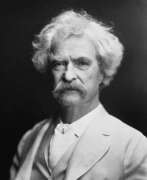

Mark Twain, real name Samuel Langhorne Clemens, was an American humanist writer, journalist, and social activist.
As a young man, Samuel worked in the printing press and in the gold mines, then went on a steamboat trip to Europe and the "Holy Land". His travel letters, full of vivid descriptions and ironic observations, were very well received by the public and were later revised into his first book, Innocents Abroad, published in 1869.
The pseudonym "Mark Twain" first appeared in 1863 under one of Samuel Clemens' short stories, and since then all his significant works have been signed by that name.
A talented storyteller, a peculiar humorist and moralist, Twain knew and loved his many diverse characters. His scandalizers and dreamers, caring aunts and ambitious politicians, grumpy widows and lying aristocrats, cunning but generous slaves, sentimental moralists, brave and naive children - all these types of American people Twain gave voice to thanks to his masterful command of colloquial language, slang and jargon. Twain wrote a lot and in a variety of genres: humor and satire, philosophical fiction and journalism and others, but he always stood on the position of humanist and democrat.
Mark Twain became world famous for his travel stories and adventure novels about his childhood, these are "The Adventures of Tom Sawyer" (1876) and "The Adventures of Huckleberry Finn" (1885). Twain is still one of America's, and indeed the world's, best and most beloved writers. His works have been and are still being published in many languages around the world.
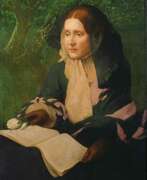

Julia Ward Howe is an American writer and poet, philosopher, abolitionist, and feminist.
Born into a well-to-do family and privately educated, Julia Ward married educator Samuel Gridley Howe and settled in Boston. She published her first collection of poems, Passionate Flowers, in 1854.Julia's early poems were praised by Hawthorne, Whittier, and Longfellow for their intellectual intensity. For a time Howe published the abolitionist newspaper Commonwealth with her husband. And in February 1862, The Atlantic Monthly published her poem "Battle Hymn of the Republic," which became the semi-official Civil War song of the Union Army, and Howe gained fame.
After the war, Howe began fighting for women's rights. In 1868, she was elected the first president of the New England Women's Suffrage Association. In 1868, she helped found the New England Woman's Club and became its president in 1871, the same year she became the first president of the American branch of the International Women's Peace Association. She was later active in the International Federation of Women's Clubs. Howe continued to write throughout her life, publishing travel books, poems, collections of essays, and biographies.
In 1870, she co-founded Woman's Journal and then served as its editor for 20 years. She traveled extensively until her advanced old age. In 1908, she became the first woman elected to the American Academy of Arts and Letters.
